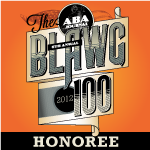SAVE THE DATES AND PLAN TO ATTEND
THE PENNSYLVANIA DEFENSE INSTITUTE'S
44th ANNUAL CONFERENCE
July 19-20, 2012
Bedford Springs Resort & Spa
Bedford, Pennsylvania
· Agenda highlights include presentations by Pennsylvania Governor Thomas Corbett and Insurance Commissioner Michael Consedine! There are also presentations on “Post-Koken Auto and Bad Faith Practice” and on “Insurance Fraud and Medical Billing Fraud”. There is also an ethics update for that elusive one hour of ethics CLE credit we all need.
· The 2012 Conference also provides for substantive law committee meetings. So, plan to attend the committee meeting of your choice and network with other PDI members in your area of practice. CLE credit is offered for participation in these meetings. To date, the Motor Vehicle, Employment Law & Civil Rights, and the Products Liability Committees plan to conduct meetings.
· As you know, PDI’s Annual Conference is not all work! We will have our traditional Presidents Reception on Thursday evening. We are also arranging with Bedford Springs activities for the whole family, including golf, hiking, biking, a cooking demonstration and a scavenger hunt. We have not even mentioned the spa and pool that Bedford Springs is famous for! And, there are off-site activities including antique shops, Old Bedford Village, covered bridges tours, Fort Bedford Museum, Gravity Hill and more. So, plan to bring the whole family this year!
· Registration material is being mailed to all PDI members. The charge for lawyers will again be $325 for all events this year. And, again this year there is no charge for insurance claim representatives to attend. We have also again negotiated a reduced rate for golfers of $100 (including cart and greens fee). In the meantime, please make your room reservations with Bedford Springs by June 25 to receive the reduced PDI room rate by e-mailing Bedford Springs at:
http://www.omnihotels.com/findahotel/bedfordsprings/meetingfacilities/padefenseinstitutemeeting7.aspx,
or by calling 814-623-8100 and mentioning you are attending the PDI Conference to secure the PDI room rate.























